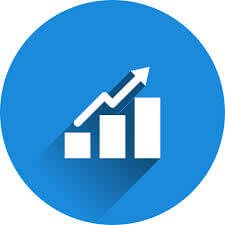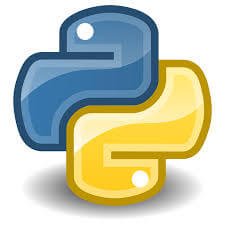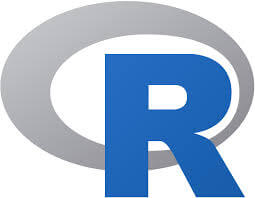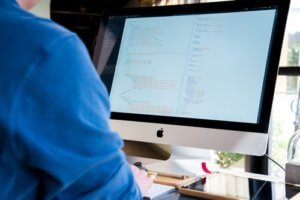The post Why do people see Data Science as part of the future? appeared first on Magnimind Academy.
]]>What can data science do in the future?
![]()
Data science is almost an indefinite pool of diverse data operations by leveraging the power of which a data scientist should be able to accomplish the following in the future.
- AI will become omnipresent: Most of us have seen the power of AI applications in the fields of automation and robotics to some extent. But in the next few years, data science professionals are expected to take AI to such a level that robots will be able to do almost everything – from cleaning the houses to running a business. Probably you’ve seen that Google Assistant has already reached a level that it can make phone calls and book reservations in restaurants and in the upcoming future, its activities will become more specialized and broaden even more.
- Advanced personalization: With billions of users across the globe using smartphones, the amount of data being generated seems to be even more massive in the next few years. Therefore, businesses, with the help of data scientists, will be able to maximize the value of data in an even better way that’ll help them address their user-base more thoroughly.
- More accurate predictions: We can expect big data analytics tools to become so advanced that data science professionals will be able to help in real-time decision making. As a result, many key functions could be predicted with much higher accuracy than they’re being done today.
Apart from the above, we can expect to see more specialized career paths evolve. With advancements in the field, the overall status of data literacy will likely to improve across the workforce where employees other than data science professionals will obtain a better understanding of the usage of data. And thus, the future of data scientists would probably become even more specialized, handling the most complex and business-critical challenges which will help their companies become even more successful in their respective fields.
Conclusion

Today, it can be safely said that data scientists will have a prominent future and the field will stay for years to come. If you’re thinking of pursuing a data scientist career, perhaps this is the best time to start your journey. Magnimind Academy’s data science bootcamp in Silicon Valley helps students to become future-proof data scientists with unique combination skills which will be always be in great demand.
. . .
To learn more about data science, click here and read our another article.
The post Why do people see Data Science as part of the future? appeared first on Magnimind Academy.
]]>The post What are the benefits of dealing with data science? appeared first on Magnimind Academy.
]]>1- Guiding actions based on trends
![]()
One of the key responsibilities of a data scientist is to examine and explore the data captured by the organization. Once these processes are done, he/she can recommend different types of actions which bring a huge scope of improvement in the business performance of the company. And after these improvements are made, it can leave a significant impact on the organization in terms of increased profit.
2- Informed decision making
![]()
With the help of a data scientist, it has become possible for business owners to predict effective measures and different trends for the success of their businesses. One of the biggest data science benefits is that it has eliminated the possibilities of upper-level risks. By reviewing different types of models created by data scientists based on already existing data, business owners can easily understand which road will lead them to success.
3- Testing the decisions
![]()
Once you’ve implemented the changes based on the insights discovered by a data scientist, it’s time to observe how these changes are impacting your business. And this is exactly where the expertise of a data scientist becomes evident again. He/she would be able to measure the key metrics which are related to those changes and quantify their true impact.
4- Real-time data
![]()
Once there was a time when marketers used to collect the info about their consumers in bulk after every campaign and analyze that information to track the progress of the campaign. But the emergence of data science has opened up a whole new field of digital marketing. Now you can build your present and future digital marketing campaigns based on real-time data, which means you don’t need to analyze distant past behavior anymore. Instead, you can focus on the present market patterns to make your campaigns highly effective. A data scientist can tell you everything about your target market trends, customer response, their buying patterns, the effectiveness of timing, and much more, helping you target your consumer base at the right time.
Parting Thoughts
![]()
These are only some of the major data science benefits that any business would be able to experience by hiring a data scientist. It’s also safe to say that the importance of these professionals will only increase over time, thanks to the increasingly connected world. If you’re an aspiring data scientist and looking for a great start, this data science bootcamp in Silicon Valley offered by Magnimind Academy would be worth checking out.
. . .
To learn more about data science, click here and read our another article.
The post What are the benefits of dealing with data science? appeared first on Magnimind Academy.
]]>The post How do you become a Data Scientist without a computer science background? appeared first on Magnimind Academy.
]]>1- The three main data science skill sets you need
![]()
Even if you don’t have a computer science background, you will need the three main data science skill sets namely programming, statistics, and business knowledge if you aim to have a successful data scientist career.
If you plan to become a data scientist, you’ll need to use programming skills to handle data at scale that can fill terabytes of space. You’ll also need a solid grasp on statistics and mathematics to evaluate patterns in data and manipulate it using different methods. Understanding business fundamentals is an equally important skill to ensure you’re capable of communicating your findings to the concerned teams or management people and encourage them to make informed decisions based on such data-driven insights.
Though you’ll need a diverse skill set to excel in the field of data science, you don’t need to worry as most data scientists won’t have picked up all of these skills in an academic environment. This indicates there’s often a lot of self-learning involved in the process, which would be advantageous for you, especially if you don’t have a computer science or statistics/math background.
You should remember that if you can prove through project work that you’ve got serious data science skills, it won’t matter whether you acquired them on your own, through a formal degree program, or via a data science bootcamp in Silicon Valley.
2- The fast-track to becoming a data scientist
![]()
Online and offline bootcamps typically offer a mentor-guided curriculum tailored to get you working with data from day one. With industry experts and experienced data scientists as mentors, who use real-world data to teach you, you’ll get your hands on real-world data from the beginning of the program. You’ll even get hands-on, project-focused classes that prepare you for data science employment by the time you end the training.
Unlike lengthy traditional degree courses, these bootcamps offer extremely targeted learning that demands you stay committed to your studies and invest 15-20 hours (or even more, at times!) regularly right from the beginning. With a hands-on learning approach, these bootcamps make you work with real data sets to analyze interesting problems and even give you additional opportunities for guided real-life projects.
When you join a leading data science bootcamp in Silicon Valley, you’ll not only get real-world experts as your mentors but even get the chance to learn and grow via peer interaction. When working on group projects with other aspiring data scientists, you’ll be able to ask questions, brainstorm to find solutions, and even learn from your peers.
If you plan to become a data scientist but don’t have a computer science background, find a data science bootcamp in Silicon Valley to make your dream come true.
. . .
To learn more about data science, click here and read our another article.
The post How do you become a Data Scientist without a computer science background? appeared first on Magnimind Academy.
]]>The post Is Being a Data Analyst a Step to Becoming a Data Scientist? appeared first on Magnimind Academy.
]]>1- Data Analyst vs. Data Scientist
![]()
The job of a data analyst is to collect, process, and apply statistical algorithms to structured data to derive benefits and help in informed decision making.
Though the goal of a data scientist is similar, a data scientist also possesses robust skills for handling large amounts of unstructured data, potentially processing them in almost real-time. If you’re a data scientist, you’ll find out important information and have the ability to clean and process it, which is then followed by running advanced algorithms on the data, which could have originated from an extensive range of sources. Data scientists also have strong business acumen, intellectual curiosity, storytelling and visualization skills, and a positive attitude toward teamwork.
2- Data Analyst to Data Scientist – The Road to Transition
![]()
Though most data analysts will have a good foundation, it would still take them some time to become a data scientist. This could be from a couple of weeks to some years depending on whether you opt for a data science bootcamp in Silicon Valley or take the arduous route of full-time degrees and programs. A data analyst would need to invest time, effort, and money to develop skills to apply cutting-edge approaches comprehensively on awkward structures and/or large/unstructured data sets.
3- Data Analyst to Data Scientist – Skills Needed for the Transition
![]()
Answering this question is difficult as sophisticated data science projects may have an intricate pipeline with several elements, and mastering all at the same time is impossible. Still, you should hone your skills (as you may have already worked with these technologies as a data analyst) or at least, touch upon a reasonable part of these:
- Data Science languages: Python and R
- Distributed computing: Spark and Hadoop
- Relational databases: PostgreSQL and MySQL
- Non-relational databases: MongoDB
- Machine learning models: Boosted Trees SVM (Support Vector Machines), Regression, NNs (Neural Networks)
- Graph databases: GraphX and Neo4J
- Cloud: AWS/GCP/Azure
- Data Visualization and Webapps: RShiny and D3
- API Interaction: Rest and OAuth
- Specialist domains: OCR (optical character recognition), NLP (Natural language processing), and Computer Vision
To fast-track your transition (from a data analyst to data scientist), you can choose a data science bootcamp in Silicon Valley that has industry leaders as its instructors. With projects, hands-on assignments, and mentorship from your instructors, such a bootcamp will get you trained in the most in-demand skills, tools, and expertise essential to think and work as a modern data scientist. Thus, you can be job-hunt ready faster than waiting for years to complete traditional or full-time classroom courses to get a job in the field of data science.
. . .
To learn more about data science, click here and read our another article.
The post Is Being a Data Analyst a Step to Becoming a Data Scientist? appeared first on Magnimind Academy.
]]>The post Data Science Training Provides Hot Dip Topics that is Relevant to Data and Data Science appeared first on Magnimind Academy.
]]>There’s a plethora of data that gets generated every second. This includes your social media activities that trigger data creation in massive amounts, your communication modes (sending text or emails, making Skype calls, sending GIFs via Facebook messenger, Tinder swipes, etc.), your online purchases, the digital photos stored on your smartphones, or the statistics generated by businesses and service providers (such as trip details on Uber, songs added on Spotify, peer-to-peer transactions processed by Venmo, page edits made on Wikipedia, etc.), among others. Sitting on this stockpile of data won’t help businesses unless they can spot trends, predict future demands, and leverage such insights to make proactive business decisions. Since data science professionals can help make sense of such data – be it structured and unstructured, there’s a huge demand for them across industries and verticals.
Perhaps this explains why there’s almost a mad rush to get enrolled in data science training courses. Despite the domain being a much coveted one, especially as it offers high-paying jobs, you should know that it won’t be a cakewalk to learn. So, if you perceive it to be an easy road, you should think twice before joining a data science training program. If you thought it would just need jumping on a data science training session to learn and basics and then become an expert, you are far from reality. You should be ready to work hard and remember that the most important thing you need to succeed in this field is depth, not just breadth. What this means is once you got the basics right, you need to choose your favorite domains and specialize. For example, some data scientists decide to delve deeper into operations and learn to tweak Apache Spark (the analytics engine) in detail.
All these shouldn’t sound discouraging because if you are really passionate about data science and are ready to invest adequate time and effort to learn and master some hot dip topics, you should definitely go ahead and join a suitable course that has the modules or course content to meet your learning and career goals.
If the data science landscape sounds fascinating to you and you plan to get enrolled into some data science training courses or bootcamps, here are some hot dip topics that you should aim to learn and master.
1- Fundamentals of Statistics

Knowing the concepts of statistics is the key to being a data scientist or data analyst, irrespective of the language or tool you decide to use in the process. If you have a Mathematics or Statistics background, you should join a data science training program that helps you brush up on your knowledge. But if you aren’t from either of these fields, you should opt for a data science training course that covers topics such as probability, descriptive statistics, distributions, hypothesis testing, estimation, inference, regression, etc.
Once you have learnt the basics, you should proceed to advanced tools, which could include the following:
- Probability value
- General linear model
- Central Limit Theorem
- Time Series Analysis
- Under and over Sampling
You should also learn about statistical methods such as Z/t-tests (independent, one sample, paired), correlations and Chi-square, Anova (analysis of variance), etc. Additionally, your data science training course should teach you the important modules for statistical methods such as NumPy, Pandas, SciPy, etc.
To learn and master hot dip topics related to data science, having adequate knowledge of statistics is a must.
2- Python

This is one of the hot dip topics in the domain of data science. If you don’t have any programming background, you should take up data science training courses that teach you the basics of Python. This would usually include getting familiar with the data types, basic programming syntax, and programming building blocks using Python. Even if you are a programmer, who has been using other languages, learning the basics of Python at first would be a good choice.
Usually, data science training modules aiming to teach the essentials of Python will cover:
- An overview of Python followed by its installation
- Getting started with Python Editors & IDE’s (PyCharm, Canopy, Jupyter, IPython, Rodeo, etc.)
- Understanding the concept of Libraries/Packages and learning about important packages (such as NumPy, SciPy, scikit-learn, Matplotlib, Pandas, etc.)
- Learning about data objects/structures (strings, sets, tuples, lists, dictionaries) as well as data types
- Dictionary and list comprehensions
- Value labels and variables – time and date values
- Reading and writing data
- Understanding the basic operations – Mathematical – date – string
- Control flow statements and conditional statements
- Simple plotting
- Code profiling and debugging
In case you already have a rock solid knowledge of the basics of Python, you can opt for advanced modules to data science with Python, which could include
- Scientific distributions uses in Python for data science such as NumPy, SciPy, Pandas, scikit-learn, NLTK, statsmodels, etc.
- Importing/accessing and exporting data using Python modules
- Using Python modules for data cleansing, manipulation, and munging
- Using Python modules for data analysis and visualization
If you are wondering why you should learn data science with Python, the answer lies in the advantages this programming language brings your way. Some of these are:
- Python is an open source programming language. Thus, this powerful programming language is free to use and has a robust community that works continuously to make it better and offers help to those who need it.
- This versatile and powerful programming language supports functional programming, structured programming, and OOP (Object-Oriented Programming) patterns.
- The Python Package Index boasts of about 72,000 libraries that can lend a helping hand in machine learning applications and scientific calculations.
- Python’s syntax is easy to understand and readable, which ensures a reduction in development time by almost 50% when compared to other programming languages.
- With Python, you will be able to perform data visualization, data manipulation, and data analysis – all of which are extremely vital in data science.
Perhaps you now understand Python has emerged as the ideal and most preferred programming language to be used for data science.
3- R

When you consider hot dip topics in the field of data science, there’s often a tussle between Python and R. If you wonder why you need to learn R for data science, here are some reasons:
- It’s ideal for statistical analysis. Since R was originally devised by statisticians for performing statistical analysis, most statisticians still prefer it as their programming choice. With R’s syntax, you can easily build complex statistical models with only a few lines of code. Additionally, since several statisticians use R packages and make their contributions to it, you’re likely to get support for any statistical analysis that you may need to perform.
- Thanks to R’s streamlined syntax for generating visualizations, you can quickly and easily build charts for exploratory data visualization.
If you are new to R, you should take up data science training courses that teach you the basics of R in relation to data science such as
- Basic knowledge of business analytics, common terms in analytics, analytics vs. data warehousing, MIS Reporting, OLAP, etc.
- Understanding how to install R-studio, R, and workspace setup.
- Knowledge of how different statements are executed in R.
- Knowledge of data structure used in R and ways to export/import data in R.
Additionally, you will need to learn about DPLYP functions; use of various graphics in R for data visualization; use of classification techniques and linear, non-linear regression models for data analysis; ways to use different association rules as well as Apriori algorithm; use of clustering methods such as DBSCAN, K-means, and hierarchical clustering; implementation of Random Forest, Decision Trees, and Naive Bayes, etc; learn ensemble methods based on SVM, NN; text analytics with R as well as time series analysis with R.
Final words

You can find several data science training courses that cover these and some other hot dip topics in the domain. If you are ready to slog it out, you may even opt for data science bootcamps that are intensive, industry-relevant programs designed to run for a couple of weeks and cover a lot of relevant subjects. The key is to choose data science training courses that meet your learning and/or career objectives and are run by reputed organizations that have well-experienced trainers or people from the industry to help students focus on what’s really needed while avoiding the unnecessary details.
. . .
To learn more about data science, click here and read our another article.
The post Data Science Training Provides Hot Dip Topics that is Relevant to Data and Data Science appeared first on Magnimind Academy.
]]>The post Master’s in Data Science appeared first on Magnimind Academy.
]]>If you want to get into this attractive position, you’ve to be equipped with a wide-ranging and diverse skillset, and have the ability of balancing knowledge in various programming languages together with possessing advanced expertise in data visualization and mining. In this post, we’re going to discuss some simple yet extremely useful steps that would help you get a competitive edge as a data scientist.
Before diving deeper, it’s important to understand that the data science revolution has just begun. It’s unclear whether the job of data scientist will continue to be the century’s sexiest job, or will indicate a set of skills that most working professionals are required to have, or will become more specialized with time. But one thing is for sure – these data science masters have the ability to transform all sectors – from health and agriculture to tech and retail, and almost every industry in-between. So, these professionals will continue to remain in high demand. And this is the best time to step into this rewarding field.
1- Key reasons to become a data science master

If you still aren’t convinced enough why you should study data science, have a look at these.
1.1- Data is transforming the world
![]()
Data has gained immense popularity because of its unbelievable potential. Data science enables entirely new generations of technological solutions. And it’s not only in AI and machine learning, where data analyses enable great changes, but in other areas too where new developments are being driven by advanced statistics.
For example, predictive analytics together with data on user behavior are helping businesses improve the UI (user interfaces) of their products, or detailed performance analyses that are helping businesses track the ROI of their marketing campaigns, just to name a few. In short, data has become the backbone of digital economy, which makes the demand of data science masters extremely high.
1.2- You’ll have incredible job prospects
![]()
In reality, employers don’t find enough of these data science masters to fill their openings. With potential employers fighting over these professionals, this is the ideal time to pursue data science so that you’ll be in a position to demand more attractive salary within a couple of years from now. If you can earn a postgraduate degree i.e. a Master’s in data science, you’ll be able to double your job options in this field.
1.3- You’ll have different career options
![]()
We’ve already discussed that data is extremely crucial to almost every organization today and almost at all levels. It’s not only the big software or IT companies that need data science masters. These professionals are needed in finance, automotive, retail, healthcare, transport, energy, and virtually almost every industry you can think of.
As data helps to drive decisions, these data science masters are getting directly involved in crucial decision making processes. Once you’ve gained a solid expertise of how to “crunch the numbers”, you can become a valuable team member with any of the common job titles that include data scientist, data engineer, data architect, big data engineer, BI (Business Intelligence) architect, data visualization specialist, and many more.
2- How to become a data science master?

Perhaps the above reasons have convinced you about becoming one of those data science masters. However, before you start your journey to become a data scientist, it’s important to understand that there’re a significant number of universities and schools that offer a diverse range of courses related to data science to address the increasing market demand. As a result, you may find a lot of people, who possess adequate knowledge relevant to the field. So, if you want to break through now, you’ve to have a competitive edge. Let’s have a look at the major steps you’ll need to achieve this goal.
2.1- Become proficient in working with big data

Data scientists need to handle a huge volume of both non-segregated and segregated data on which computations often become difficult. Most data science masters use big data software such as Spark, Hadoop etc to achieve distributed processing. You should focus on mastering these software by taking courses on them.
2.2- Become a master in data visualization, munging etc
![]()
Data visualization is a crucial set of skills on which data scientists rely heavily when it comes to facilitating administrative and managerial decisions using data analysis. Data munging, which is an equally important skill, refers to the process of converting raw data into a form that’s easy to consume.
2.3- Become a master in coding
![]()
Put simply, it isn’t possible to become a good data scientist until you’ve got a solid understanding of the language through which data communicates. A chunk of usable data may be waiting for its analysis but you cannot do anything if you don’t know the script. Remember that a good coder may not be a good data scientist, but a good data scientist is always a good coder.
2.4- Obtain a solid knowledge of databases
![]()
Virtually, a huge amount of data is being generated every minute and a majority of businesses today employ database management software like Cassandra or MySQL to store and analyze data. Good knowledge of the working methods of a database management system will surely help you in your effort to become one of those data science masters.
2.5- Maintain the right balance
![]()
As an aspiring data scientist, you’d need to develop skills in statistics, mathematics, and machine learning, among others. The key to success is maintaining the right balance among these.
2.6- Become a great communicator
![]()
Great communication skills can help you rise above the competition. More often than not, data scientists find themselves explaining the findings of their data analysis to people who’re the decision makers. And data scientists, who’ve the ability to communicate effectively, often find themselves in a better position when it comes to dealing with unforeseen situations.
In addition, as a data science master, you’ll have to work with teams. So, it would help to develop the intuition needed for making decisions and analyzing data by following the workings of your peers closely.
2.7- Develop robust business acumen
![]()
In today’s competitive landscape, the hands-on component is crucial when it comes to securing great jobs. To secure an enviable job, you’ve to demonstrate how you can bring value to an organization through your expertise. A solid understanding of the industry you’re planning to work in becomes extremely crucial when it comes to problem solving.
2.8- Create a great portfolio
![]()
Once you’ve become one of the data science masters, you should focus on gaining experience. Experience is a critical component that can help you stand out of the pack. As a beginner, you should try to do some projects. And once you’ve gained a moderate level of experience, picking a specific area and specializing in that is always recommended.
2.9- Never stop learning
![]()
Once you’ve become a part of the league of data science masters, you shouldn’t put an end to your learning. You can follow websites that are great training grounds for data scientists as they keep on trying to find members and compete against each other to hone their skills and demonstrate their intuitive approaches. With the emergence of such credible websites in the industry, these competitions are quickly becoming a stage to demonstrate to your potential employers how innovatively your mind works.
Another key thing you should keep in mind is that the skills, which are necessary to become a data scientist today, may not be the same tomorrow and are likely to change within a short period. As we’re experiencing fast developments in both the commercial data science tools and in the ecosystem of tools that are used to work in the field of data science, we’re also experiencing increasing automation in several aspects of data science like data preparation and data cleansing. So, it can be said that apart from technical skills, the ability to learn and communicate well to address critical business questions and explain complex findings to non-technical people would help you go that extra mile in your career. New technologies may come and go, but domain-specific, quantitative skills, and critical thinking will always remain in demand.
Wrapping up

Regardless of whether you’ve just become a data science master or you’ve a couple of years of experience under your belt, you’ve to keep yourself up-to-date with the occurrences in the field of data science and different types of job openings being offered in the field.
Try to follow the above steps to fulfill your ambitions of becoming a good data scientist and to steer your way through increasing competition, and toward excellence.
. . .
To learn more about data science, click here and read our another article.
The post Master’s in Data Science appeared first on Magnimind Academy.
]]>The post Top 5 Tips – Cracking Data Science Interview appeared first on Magnimind Academy.
]]>1- Strengthen Your Skill Sets:

Since data science is an interdisciplinary field, you need to strengthen your core skills that will help you sail ahead of your competitors. So, strengthen your mathematics skills (statistics, multivariate calculus and algebra), computer science skills (programming, data wrangling, and machine learning), and data communication skills (data intuition and data visualization). Data science training may develop your skills.
2- Master Data Science Tools:

This is another important step that involves mastering data collection and cleaning tools, programming tools (Python and R), as well as machine learning and modeling tools. In fact, these are the tools that will help you strengthen your skills that are relevant and important to sail through data science interviews.
3- Know Your Limitations:

Despite your educational qualifications and experience, you won’t know everything about data science. And that’s ok. Learn to accept your limitations and be prepared to admit you don’t know a thing or two if such questions are asked in the interview. Rather than acting as if you know everything, balance what you know with the humble attitude of discussing what you don’t. This will create a much better impression on interviewers than faltering on answering a question after saying you know it all. Learning data science improve career.
4- Be Prepared for The Interview:

Take time to craft your resume carefully (and update it, if necessary), and read the job description carefully to understand your job profile. If you have worked on some past projects worth mentioning, remember their intricate details to ensure you can talk about them confidently, if necessary. Checking out some sample questions online and practicing their answers, learning from other people’s experiences (based on their online/offline anecdotes), and making a list of a handful of questions that you can ask your interviewers are some others steps that you should include in your interview prep schedule. Business is expected craft forward workers.
5- Show Different Facets of Your Intelligence to Simplify Things:

Data science interviews aren’t just about showing how capable you are in proving a theorem or finding the solution to an equation. Instead, they are about showcasing various facets of your intelligence with a focus on abstraction and minimization. After all, simplifying things is the hardest thing to do. So, during the interview, show how passionate you are about simplifying things by breaking down your thought process into simple steps and rational actions. Learn tech giant with data science boot camp in Bay Area.
In addition to the above, you should do the following:
- Practice to speak clearly and confidently
- Indicate how comfortable you are in working as a team member and collaborating, and
- Control the conversation as much as you can
Above all, remember to conduct yourself during the interview in such a way that tells why the organization needs you and can do better with you in its ranks. Image of future is different to the present. You should show that you are the best for this job, because you follow the novelty.
. . .
To learn more about data science requirements, click here and read our another article.
The post Top 5 Tips – Cracking Data Science Interview appeared first on Magnimind Academy.
]]>